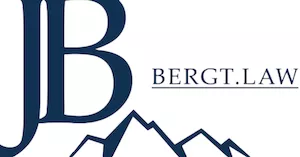- in European Union
- within Tax topic(s)
- in European Union
- within Law Practice Management topic(s)
- with readers working within the Utilities industries
When the Principality of Liechtenstein transposed the OECD/G20 "Pillar Two" framework into domestic law in late 2023, thereby introducing both an Income-Inclusion-Rule (IIR) top-up tax and a Qualified Domestic Minimum Top-up Tax (QDMTT) with effect from 1 January 2024, many in-house tax departments applauded the principled certainty yet discreetly hoped that the practical-reporting dimension might remain as lean as the country's famously agile bureaucracy; their ostensibly reasonable wish, however, has now met the cold calculus of multilateral data-exchange reality, given that the Government's freshly circulated draft – scheduled to enter into force on 1 January 2026 – ties Liechtenstein into the Multilateral Competent Authority Agreement on the Exchange of GloBE Information (the "GIR MCAA") and rewires the existing GloBE Act accordingly.
In other words – and this is the pivotal message for boardrooms and family-office principals alike – every multinational enterprise (MNE) whose Ultimate Parent Entity (UPE) or appointed filing entity is resident in Liechtenstein will, in future, be required to file the standardised GloBE Information Return ("GIR") with the Tax Administration within fifteen months after the close of the reporting fiscal year (or eighteen months for the first year that the group falls under the rules) and may henceforth rely on that single filing to trigger the onward automatic exchange, jurisdiction by jurisdiction, of both the "general section" and the "jurisdictional section" of the return, depending on whether the receiving state operates an IIR/UTPR or only a QDMTT; this streamlines cross-border compliance yet simultaneously amplifies the visibility of effective tax-rates across an unparalleled spectrum of authorities, thereby raising the stakes for accurate data-mapping, reconciliation of local accounts with consolidated figures and—last but not least—robust governance around data-security and whistle-blowing protocols.
Crucially – and here the draft is uncompromising – Liechtenstein entities that qualify as "reporting constituent entities" must pro-actively register on the electronic portal of the Tax Administration, update their registration when facts change and, upon cessation, actively deregister; failure to register, to furnish information, or to cooperate with tax-authority controls may trigger staggered fines that can reach CHF 250,000 for wilful non-filing of the GIR and CHF 20,000 for obstructing an audit or ignoring a data-request, with an additional layer of liability under the forthcoming Liechtenstein Administrative Penalties Act (VStG).
While observers might wonder whether the overlap between the GIR filing and the domestic QDMTT return engenders redundant bureaucracy, the Government explicitly states that the two filings pursue distinct regulatory objectives and should not be conflated; nonetheless, the registration deadlines have already been aligned to mitigate duplicative effort, evidencing a policy preference for pragmatic convergence where constitutional symmetry permits.
From a confidentiality angle, the amended Act transposes the familiar "need-to-know" principle: exchanged GIR data remain cloaked by the confidentiality provisions of both the Multilateral Convention on Mutual Administrative Assistance in Tax Matters (MAAC) and the GIR MCAA, and must be erased by the Liechtenstein Tax Administration once the ten-year statute of limitations for administrative penalties expires; yet the statute also empowers the Administration to halt an exchange where overriding ordre-public concerns arise, thus preserving a sovereign firewall against manifest abuse.
What does this mean in practice? It means that C-suite executives cannot postpone the inevitable consolidation of globally scattered data into GIR-ready structures; that legal counsel must interrogate intra-group agreements—especially cash-pooling, IP licensing and supply-chain pricing—to ensure that the effective-tax-rate computations embedded in the GIR will withstand peer-review in every pertinent jurisdiction; and that advisers should already be mapping the interaction between Liechtenstein's QDMTT and foreign top-up regimes to pre-empt double taxation or, conversely, inadvertent under-taxation that could invite UTPR reallocations in later years.
At Bergt Law we combine boutique agility with Big-Four analytical depth. Should you wish to explore how Liechtenstein's 2026 GloBE-Amendment affects your structure—or if you simply require a seasoned sparring partner to road-test your Pillar Two assumptions—please reach out via bergt.law/en.
Sources: Report And Motion Concerning The Amendment Of The Law On Minimum Taxation Of Large Groups Of Companies (Globe Law), No. 40/2025.
Executive Summary:
- Single-Window Filing: one GIR filed in Liechtenstein will automatically reach all partner jurisdictions, eliminating multiple submissions but magnifying exposure to scrutiny.
- Mandatory Registration: reporting entities must register within 15 months (18 months for the first year) and keep their profile current; non-compliance invites fines up to CHF 250,000.
- Extended Penalty Regime: the draft aligns with the new Administrative Penalties Act, introducing tiered sanctions for non-filing, misfiling and obstruction.
- Data-Security Duties: tax authorities must inform filers of any data-breach; filers must in turn notify impacted foreign entities, embedding privacy compliance into tax workflow.
- Ordre-Public Safeguard: the Tax Administration may refuse an exchange where Liechtenstein's public order would be compromised, preserving a sovereign veto.
- Strategic Imperative: MNEs should integrate GIR readiness into broader Pillar Two modelling, harmonising QDMTT computations with foreign IIR/UTPR exposures.
The content of this article is intended to provide a general guide to the subject matter. Specialist advice should be sought about your specific circumstances.


